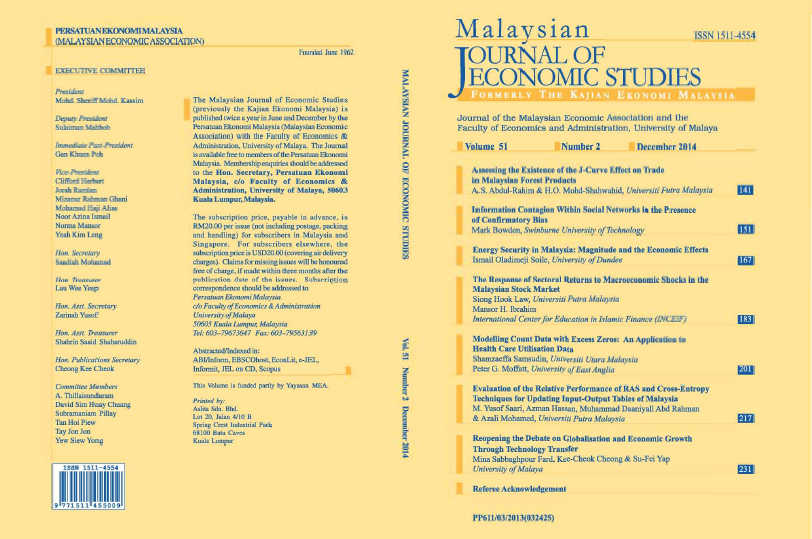Reopening the Debate on Globalisation and Economic Growth Through Technology Transfer
Keywords:
Economic growth, globalisation, human capital, technology transferAbstract
The main question posed by this research is whether globalisation is capable of increasing the growth rate of low-income, as well as middle-income or high income countries. This paper provides empirical evidence that there are two roles for globalisation. One is the direct effect of globalisation on economic growth, and the other is the indirect effect -through technology transfer as the facilitator and accelerator of accumulation of human capital (absorptive capacity). In this research, the KOF index and FDI have been chosen as proxies for globalisation. By modeling knowledge transfer through globalisation factors, it is possible to study the impact of new aspects of growth in the traditional Solow model. The results showed that the KOF index is most effective compared to traditional proxies for human capital, such as the education factor. This is true especially in low-income countries as it turns out most of the economic growth is explained by the KOF index and physical capital accumulation, since there is a place for exchange of knowledge compared to only exchange of goods. It can be concluded that the exchange of ideas can have stronger effects on economic growth compared to exchange of goods, and can better improve the growth in low-income countries. Therefore, government policies should aim towards improving the absorption capacity of countries, so as to enable the absorption of technology from leaders.

